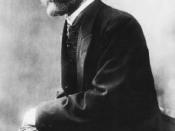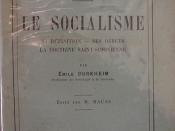Criminology is a field that has been researched for many centuries. Most of the information explaining crime and delinquency is based on facts about crime (Vold, Bernard, & Daly 2002, p.1). The purpose of this essay is to describe the theories of crime and punishment according to theorists Cesare Lombroso, Marcese de Beccaria and Emile Durkheim. The theories were developed in the 18th and 19th centuries to the response of industrialisation and modernisation of societies. The main aims of the theories were to re- establish social solidarity (Vold, Bernard, & Daly 2002, p. 101). The perspectives of criminology in relation to crime and punishment will be addressed in a dialog between the three theorists. The basis of the dialog is to explore the relationships of the positivist and the classical school of criminology theories. Finally, student will ask C. Lombroso, M. Beccaria and E. Durkheim about their theories concentrating on the critique views.
Commentator: Welcome to the transhistorical conference on criminological thoughts. This evening we have three theorists, Emile Durkheim who will be talking first. Marcese de Beccaria will speak second followed by Cesare Lombroso, they will be provided us with their theories on crime and punishment. Emile Durkheim will now take the chair, presenting the first argument.
Durkheim: Welcome everyone, glad that you could attend this conference. The reason that we are all here today is to talk about crime and punishment. There have been many social changes over the centuries. The traditional and the organic societies direct individuals to control their own desires and ambitions. No living being can be happy or even exist unless his needs are sufficiently proportioned to his means (Durkheim 1897). We need to pursue the resistance from things we encounter over our lifetime. The fewer limits that a person feels may...


